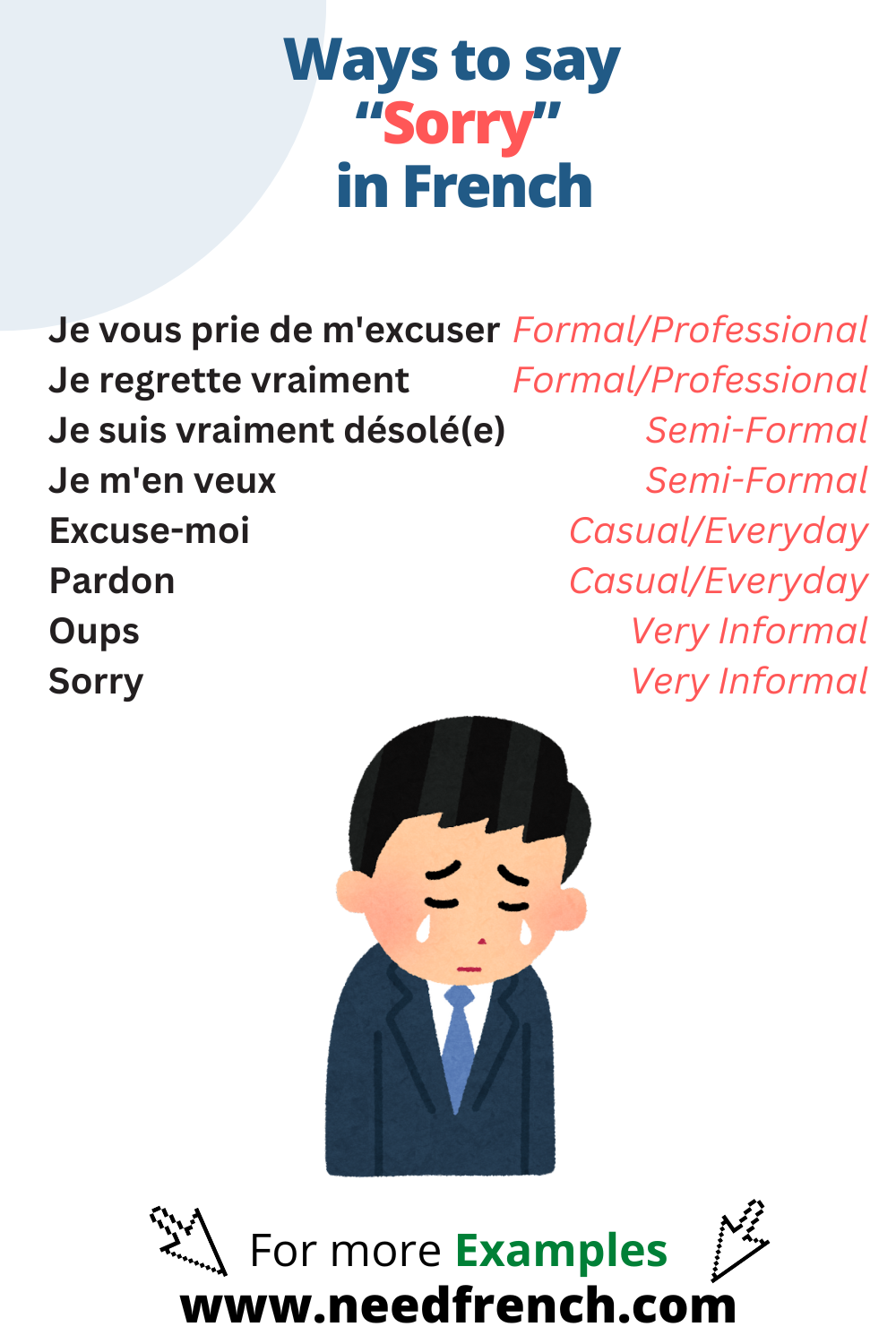Knowing how to apologize appropriately in French is essential for social interactions. Whether you’re saying a casual “oops” or offering a formal apology, each expression has its own context and usage. This guide is designed for beginners, breaking down eight key ways to say “sorry” in French, organized by formality. You’ll find pronunciations, meanings, usage tips, and examples, plus additional expressions, cultural notes, and real-life scenarios to help you apologize confidently in any situation.
Table of Contents
ToggleHere are some extra phrases you might find useful:
Professional/Formal Settings:
Everyday Situations:
With Friends/Family:

© 2025 NeedFrench - Learn French online with free resources.
© 2025 NeedFrench - Learn French online with free resources.